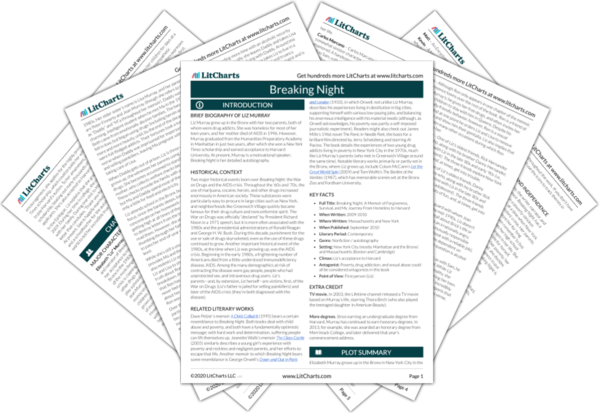Perry Weiner is a kind, understanding man, who genuinely believes in the importance of giving anyone a chance. Where Liz’s previous interviewer of the day was curt, cold, and inflexible, Perry is compassionate and willing to bend some rules in order to give Liz a good education. At the same time, this scene shows the importance of luck and other people’s help in Liz’s journey to success—if Perry had rejected Liz for her lateness (a totally understandable reaction for an interviewer), all her hard work would have been for naught.
